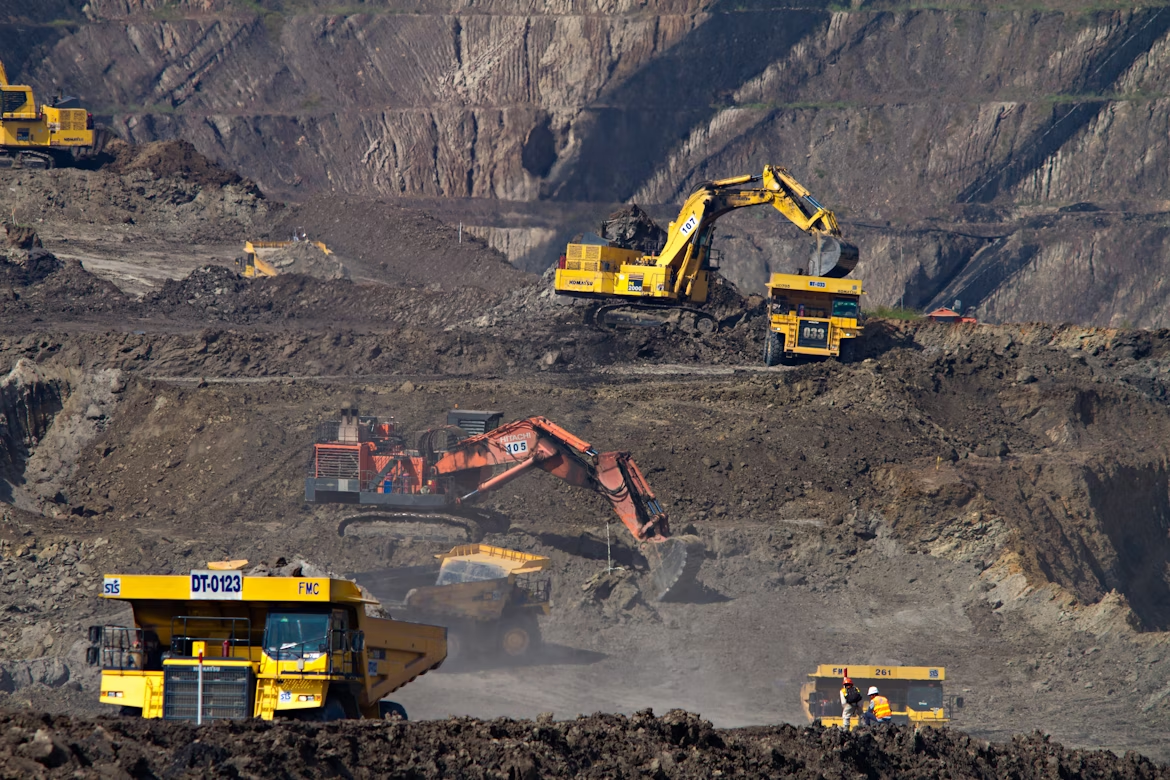The United Nations Environment Programme (“UNEP”) has underscored the crucial role that mining plays in securing the clean energy transition. Speaking publicly on 9 January 2024, UNEP’s Executive Director and UN Under-Secretary-General Inger Andersen highlighted the “huge opportunity for developing countries with [energy transition] metals and minerals to invest in sustainable development”. She noted further that the world “will need over three billion tonnes of energy transition minerals and metals to deploy wind, solar, energy storage and more” in order to stay below 2°C by 2050.
Her comments were made in Riyadh on 9 January 2024, on the occasion of the Kingdom of Saudi Arabia’s third annual Future Minerals Forum. The Future Minerals Forum gathers high-ranking government officials and senior members of the private sector from the world’s largest mining and energy companies to discuss the creation of resident and responsible mineral value chains across Africa and Asia. Speakers this year included government ministers from Saudi Arabia, the Democratic Republic of the Congo, Finland, Ghana, Kazakhstan, Nigeria, Pakistan, Somalia, Uganda, the United Kingdom, Zambia and Zimbabwe, as well as leaders from many of the world’s largest mining companies and leading civil society organisations.
Speaking at the event, the UNEP’s Executive Director emphasised the importance of long-term strategies to securing supplies and commended the Future Mineral Forum’s focus on resilient mineral value chains. Among other things, she called on governments to consider ways to strength and harmonise policies to encourage responsible extraction of energy transition minerals. She highlighted the announcement by the UN Secretary-General at COP28 of a new Panel of Critical Energy Transition Minerals, which will develop common voluntary principles for sustainable extractive sector industries.
Comment
As many government and private sector actors have long recognised, securing supply chains of critical raw materials will be crucial to driving the clean energy transition. In 2022, for example, the OECD’s International Energy Agency sounded a warning that current supply and investment plans for critical minerals fell well short of levels needed to support the clean energy transition. It warned that this risked delaying or increasing the cost of clean energy transitions, “a possibility that the world [could] ill afford”. The UNEP’s public call for increasing investment into energy transition minerals should be viewed in this light.
The position of the UNEP – one which will have been carefully agreed and coordinated – demonstrates the nuanced and complex approach needed to mining (and promoting mining-related investments) in order to manage climate change. The UNEP’s recent comments are particularly notable for having been made by Ms Inger Andersen, who until 2019 served as Director-General of the International Union for Conservation of Nature.
Governments and private actors alike are paying increasing attention to the need to secure supplies of critical raw minerals, ranging from cobalt, lithium and rare earth elements to the steelmaking coal required to drive forward renewable energy. In recent years, Australia, the UK, the US and the EU have all adopted critical mineral strategies in order to secure supplies and scale up domestic production. The EU recently redesignated steelmaking coal on its list of critical raw materials, while Australia has considered a similar designation. This reflects an unequivocal recognition of the fundamental difference between steelmaking coal (also known as metallurgical or coking coal) and thermal coal. As its name suggests, steelmaking coal remains a crucial component of steelmaking processes required to deploy wind turbines and other clean energy infrastructure. At the same time, following recent major legal developments, governments and private actors are increasingly pursuing deep sea mining to secure critical minerals for the clean energy transition. Most notably, Norway and the Cook Islands have accelerated efforts to mine the seabed within their national jurisdiction. At the international level, the International Seabed Authority (with nearly 170 member States) has granted over 30 mining contracts for the exploration of deep seabed minerals in the seabed beyond national jurisdiction. Efforts continue at the International Seabed Authority to enable these contractors to move from exploration into exploitation, a process triggered at the specific request of the Republic of Nauru.
States and companies alike will be looking carefully at how best to secure long-term and stable supplies of in-demand critical minerals. Working in partnership with local regulators, significant opportunities exist for private sector actors to drive increasing investment into securing critical minerals. At the same time, cross-border investment into long-term mining ventures continues to carry major risks. Investors should therefore take proactive steps to ensure that their mining investments are properly structured. If so, they may be able to attract significant protections under an international investment treaty that host States can neither ignore nor escape.
For further information, please contact info@volterrafietta.com.



